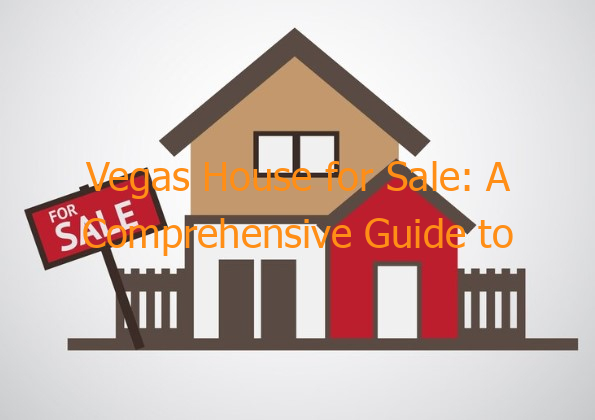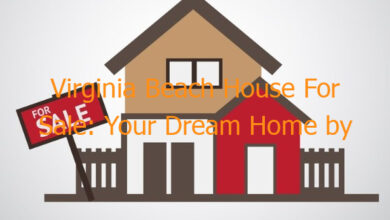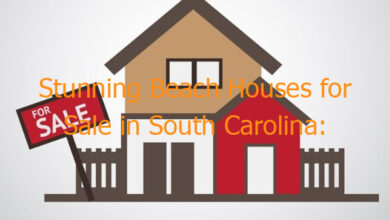Vegas House for Sale: A Comprehensive Guide to Buying Your Dream Home

Introduction
Las Vegas, a city known for its dazzling casinos and vibrant entertainment, offers a unique and alluring allure that attracts countless visitors and homebuyers alike. If you’re considering making Vegas your permanent abode, purchasing a house is a significant decision that merits thorough research and careful consideration. Our comprehensive guide will delve into the intricacies of the Vegas real estate market, highlighting its strengths, weaknesses, and providing invaluable insights to empower you in your search for the perfect home.
Las Vegas boasts a thriving economy anchored by the tourism and hospitality industries. This economic vitality translates into a robust job market, offering ample opportunities for professionals in various fields. The city’s vibrant arts and culture scene caters to diverse tastes, with renowned museums, art galleries, and world-class entertainment venues. Las Vegas also boasts a growing culinary scene, tantalizing food enthusiasts with an array of culinary delights from around the globe.
Strengths of Vegas House for Sale
1. Value for Money:
Las Vegas offers exceptional value for money compared to other major metropolitan areas. Homes in Vegas are typically more affordable, allowing buyers to secure a comfortable abode without breaking the bank. Whether you’re a first-time homebuyer or a seasoned investor, Vegas provides a compelling opportunity to acquire a desirable property at a reasonable price.
2. Diverse Housing Options:
Las Vegas offers a diverse range of housing options to suit every taste and lifestyle. From sprawling mansions to cozy single-family homes, sleek condominiums, and charming townhouses, the city’s real estate market caters to a wide spectrum of buyers. Whether you seek an opulent estate with breathtaking views or a more modest abode, Las Vegas has a property to match your dreams.
3. Luxury Amenities:
Las Vegas is renowned for its luxurious lifestyle, and this opulence extends to its residential offerings. Many homes in Vegas feature high-end amenities that are simply unmatched in other cities. State-of-the-art kitchens, lavish bathrooms, private pools, and stunning outdoor living spaces are just a few of the many luxuries that await discerning buyers.
4. Strong Rental Market:
Las Vegas’s strong rental market presents a compelling opportunity for investors seeking passive income. The city’s robust tourism industry generates a constant demand for rental properties, providing investors with the potential for stable and lucrative returns.
5. Lifestyle Benefits:
Las Vegas offers an unparalleled lifestyle that combines the excitement of a bustling city with the serenity of desert living. Residents can indulge in world-class entertainment, fine dining, and shopping, while also enjoying the tranquility of desert landscapes and breathtaking mountain views.
6. Favorable Tax Climate:
Nevada, where Las Vegas is located, boasts a favorable tax climate that benefits homeowners. The state has no personal income tax, estate tax, or inheritance tax, making it an attractive destination for those seeking to minimize their tax burden.
Weaknesses of Vegas House for Sale
1. High Property Taxes:
While home prices in Las Vegas may be more affordable than in other major cities, property taxes in the city are relatively high. Buyers should factor in these costs when budgeting for their potential purchase.
2. Water Scarcity:
Las Vegas lies in a desert region, which makes water a precious resource. The city has implemented strict water conservation measures, and homeowners should be prepared to pay higher water bills compared to other areas.
3. Extreme Heat:
Las Vegas experiences extreme heat during the summer months, with temperatures often exceeding 100 degrees Fahrenheit. Homebuyers should consider the cost of cooling their homes when making a purchase decision.
4. Traffic Congestion:
Las Vegas can experience significant traffic congestion during peak hours, particularly on the famous Las Vegas Strip. Homebuyers should research potential commute times and consider the impact of traffic on their daily lives.
5. Tourist-Oriented City:
Las Vegas is heavily dependent on tourism, which can impact the quality of life for residents. Noise levels, crowds, and traffic can be a concern, particularly during busy tourist seasons.
6. Limited Green Spaces:
Las Vegas has a limited amount of green spaces compared to other cities. While there are some parks and recreational areas, buyers should be aware that outdoor activities may be more constrained.
Table: Vegas House for Sale Information
| Property Type | Median Sale Price | Median Square Footage | Median Lot Size |
|---|---|---|---|
| Single-Family Home | $450,000 | 1,800 sqft | 5,000 sqft |
| Condominium | $300,000 | 1,200 sqft | N/A |
| Townhouse | $350,000 | 1,500 sqft | 2,500 sqft |
FAQs about Vegas House for Sale
1. What is the best time to buy a house in Las Vegas?
The best time to buy a house in Las Vegas is typically during the off-season, from October to April. During this time, the market is less competitive, and buyers may be able to negotiate better deals.
2. How much do closing costs typically run in Las Vegas?
Closing costs in Las Vegas typically range from 2% to 5% of the purchase price. These costs cover fees such as title insurance, attorney fees, and lender fees.
3. What are the property tax rates in Las Vegas?
Property tax rates in Las Vegas vary depending on the location and type of property. However, the average effective property tax rate is approximately 1.25% of the assessed value.
4. Are there any special programs for first-time homebuyers in Las Vegas?
Yes, there are several special programs available for first-time homebuyers in Las Vegas. These programs can provide financial assistance and down payment assistance to help buyers purchase their first home.
5. What are the different types of mortgages available in Las Vegas?
There are a variety of different mortgage types available in Las Vegas, including fixed-rate mortgages, adjustable-rate mortgages, and FHA loans. Buyers should consult with a mortgage lender to determine which type of loan is right for them.
6. What are the average utility costs in Las Vegas?
The average utility costs in Las Vegas vary depending on the size and type of home. However, homeowners can expect to pay approximately $150-$250 per month for utilities, including electricity, water, and gas.
7. Are there any special tax incentives for homeowners in Las Vegas?
Yes, there is a special tax incentive for homeowners in Las Vegas known as the homestead exemption. This exemption reduces the assessed value of a homeowner’s primary residence, which can result in lower property taxes.
8. What are the HOA fees like in Las Vegas?
HOA fees in Las Vegas vary depending on the community and the amenities offered. However, buyers can expect to pay anywhere from $100 to $500 per month in HOA fees.
9. What is the process for buying a house in Las Vegas?
The process for buying a house in Las Vegas typically involves the following steps: finding a real estate agent, getting pre-approved for a mortgage, making an offer, negotiating the contract, completing the home inspection, and closing on the purchase.
10. What are the different types of neighborhoods in Las Vegas?
Las Vegas offers a variety of different neighborhoods, each with its own unique character. Some of the most popular neighborhoods include Summerlin, Henderson, and Green Valley.
11. What are the best schools in Las Vegas?
Las Vegas is home to several highly-rated schools, including the Clark County School District, the










